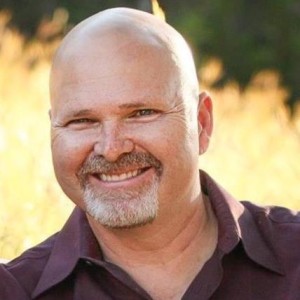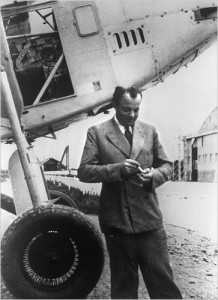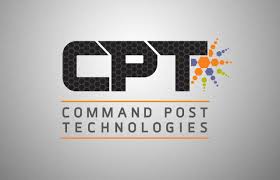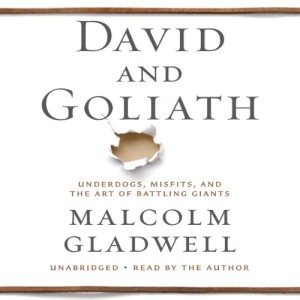
This post is based on the podcast – Jerry Marlatt, Founder and Owner of Command Post Technologies and First Team Sports Group.
Welcome to High Speed Low Drag, the podcast for veterans and soldiers transitioning into the civilian world. War veteran John Lee Dumas interviews other veterans who are crushing both business and life, revealing the path they took to achieve outstanding success. Veterans, are you prepared to ignite?
John: Veterans, are you interested in owning your own business? Join me, Antonio Centeno and Tom Morkes, all successful entrepreneurs and veterans, as we talk about what it takes to build your own business from scratch by leveraging the skills you developed while serving your country. And you’ll have the support of a community of veterans that are committed to helping you succeed. Visit highspeedelite.com. That’s highspeedelite.com.
High Speed Nation, John Lee Dumas here and I am fired up to bring you our featured guest today, Jerry Marlatt. Jerry, are you prepared to ignite?
Jerry: Absolutely, John. Let?s do it.
John: Yes!
Jerry is the founder and owner of Command Post Technologies and First Team Sports Group where he services clients as a professional football agent and baseball advisor. He retired from the United States Army after a 20 year career in the Signal Corps and a tour in Iraq. He hosts Career in Sports podcasts to provide entertaining, insightful and empowering content to help those aspiring to a career in sports.
Jerry, I have given High Speed Nation just a little insight so share more about you personally that expound upon the biz.
Jerry: Absolutely, John.
So a little bit about myself. I am a retired US Army officer from the Signal Corps. I served in the Army for 20 years retiring in 2006. Shortly after retiring, I started a telecommunications reseller business where I actually took the expertise and the need that I saw of deployed forces, built a business around that and that really kind of rode the wave for the Iraq war. At the conclusion of that business I looked out and had to determine what I wanted to do from there.
And that’s where I saw really a need for sports representation business for sort of the mentorship that I was able to provide young Army officers and soldiers that there was a need there with young athletes. So I started First Team Sports Group and I’ve enjoyed it ever since.
John: Well, Jerry, we’re really going to do a dive into your journey and really kind of talk about how that idea came into fruition, your history in general. But before we get into that, Jerry, we always start with a success quote. So share that with us and why you chose to share it.
 Jerry: One of my favorite quotes, John, is
Jerry: One of my favorite quotes, John, is
?A goal without a plan is just a wish.??
That’s by Antoine de Saint-Exupery who is an award-winning French author and World War II military aviator.
Every time I begin a new endeavor I employ some of the tools that I learned in the military. I start with mind mapping because I think you have to have that plan to accomplish the goal. So mind mapping for me is an exercise where I start with a blank sheet of paper, yellow legal pad, and I write down everything that comes to mind on a particular topic. And from there I identify different task groupings such as marketing, social networking opportunities, business development, all the way down to the minute things like bookkeeping and just anything that might have to do with this business, things I might have to accomplish or fees to pay to get started. And then I just continue to refine that until I have a finished product or really a framework of the tasks that I’ll have to accomplish to be successful.
John: So Jerry, that’s a great success quote to get us kind of rocking and rolling because what High Speed Low Drag is all about here is really talking about our spotlight, I guess a journey in general and that’s you, Jerry, today.
So let’s kind of focus on number 1, your military experience. You have a lot of stories in a 20-year career that I’m sure you could tell. But we’re kind of looking for that story for you to kind of take us to that moment that you would consider your most pivotal in your Army career.
Jerry: Well, just a little bit of a background, John. My journey in the military started in a Met station in Seattle, Washington. I’m the guy who married his high school sweetheart out of high school and I have to say I am happily married still. But my reason really for joining the military was the fact that I had to support a new wife and I didn’t have the money to pay for college.
So I took advantage of some of the opportunities that the Army was offering at that time — Army college fund, GI bill — and really didn’t know if my tour in the army would go beyond those initial four years. I came in as a single channel radio operator at Fort Gordon, Georgia and I really came in I didn’t know what it was all about but I was fortunate. That first assignment I was able to earn 21 college credits. I was in a Persian missile battalion basically as a signal enlisted guy and that unit didn’t have a mission following some reduction treaty that kind of took those missiles out of the arsenals.
So I had time to go to college, moved to Germany after just a year there in that first assignment in Oklahoma and really was able to continue to pursue the college aspect and get real close to my bachelor’s degree but I also really came to love the army. So as I was working towards my college degree my first sort of aha moment, if you would, was that I really like what I?m doing. I like the people and I like the purpose of what we were doing so I decided I wanted to become an officer.
At that point I basically put in a packet, wast’ accepted the first time but the second time got the OCS packet accepted and came back to the States for a short time before going to OCS. From there it was just a myriad of assignments. I could tell you stories about having troops that almost set the strip guard army airfield on fire, just some crazy stories.
John: We’ll hold that for the deleted episodes of High Speed Low Drag, Jerry.
Jerry: Exactly! But just some fantastic assignments from being a platoon leader, a company commander at Fort Huachuca, Arizona to having the opportunity to serve in Italy for three-and-a-half years. Really just a dream job there in a NATO assignment. Small little outpost in Verona, Italy where there’s about 100 Americans, really allowed me to kind of connect with family again, coach all my kids’ youth teams.
And then sort of towards the tail end of my career, after a year at Fort Leavenworth, came back to Texas which is where I was born, served in the First Cavalry division, deployed with them and had a crazy year. I know you were in Iraq also and it’s the most professionally-rewarding. I got about four hours of sleep at night but great people and solid mission that we were doing over there. And then being a Christian man, my wife and I, her a Christian woman, we both of prayed about what we were going to do kind of separately.
I was the guy who had planned on making the Army a 30-year career and we got to that point. Kind of separately we prayed about it, came together and when I returned from Iraq and had that conversation. I said I think I’m ready to do something else and to my surprise she said “I’m right there with you.” So that kind of served as our transition out of the military.
John: Well Jerry, I want to hold on here for a second because we’re really kind of trying to focus segment by segment. This is where a lot of the listeners are at in their lives right now. They’re either currently in the military, some of them are potentially transitioning out as we speak, some of them are already out right now but they remember that transition oh so well.
So talk to us about that transition. Really get specific about any obstacles or challenges that you might have faced while you were making that move.
Jerry: Sure. The transition really, kind of like my success quote “A goal without a plan is just a wish.” Well, my plan basically was conducting research. Having been deployed I knew what some of the shortfalls were. I knew that, as a guy who has a Masters in telecommunication, I knew we did not have the coms packages that were required.
So the first thing I did was really in my off time with a few months prior to separating, I formed those strategic partnerships with Motorola, with Dell, with different radio providers and really just myself kind of engineered a coms package that would serve the deployed forces.
My transition really started with attaining certifications with Cisco for example. Just kind of putting in those long hours prior to separating so that when I did and the retirement came, I would have those relationships in place. So for me, a lot of the prior planning was done in the few months leading up to my retirement.
John: So now let’s kind of talk about this for a second, Jerry, like your first actual civilian gig. I’ve shared mine a number of times on this podcast already about it was a disaster. I said law school was for me — I was only 26 at the time because I did four active, four reserves — and I only lasted one semester. And it seems like a lot of people, when they transition out, do struggle with that first civilian gig.
So what was yours and kind of tell that story around how you got into it.
 Jerry: Sure. As the founder of Command Post Technologies, I relied heavily on relationships that I had with various military majors, colonels, captains — people that were either deployed or about to deploy. So I contacted them and said ?Look, I know you don’t have all the coms that you need. Tell me what your requirements are.?
Jerry: Sure. As the founder of Command Post Technologies, I relied heavily on relationships that I had with various military majors, colonels, captains — people that were either deployed or about to deploy. So I contacted them and said ?Look, I know you don’t have all the coms that you need. Tell me what your requirements are.?
And literally, I got a copy of QuickBooks. I said “Okay, I got a business. I’ve got to manage purchase orders and invoices.” I remember the first time somebody said ?Hey, we’re ordering this equipment. Send me a purchase order for this? and I’m like “What’s a purchase order?” Just the basic things, you know what I’m talking about. But just the basic business things, you have to learn those. Getting the business certified as a Service-Connected Disabled Veteran- Own Business through the Small Business Administration — I did that. And then it’s just a matter of literally going out there and hustling, trying to find where I could make a sale.
Again, I felt good about the products that I was offering, knowing who it was going to serve and the fact that the need was out there. So really those first steps was just building the business. I was fortunate that — gosh — within a couple of months being in the business, I had a $1.1 Million contract for communications equipment so it really took off from the onset. I know that’s not everyone’s experience but I was just really blessed in the fact that the business took off literally from I won’t say day 1 but probably the 30th day, we had an order.
John: Well Jerry, from that point? This is really interesting because a lot of people might look at that and say “Wow! What an overnight success, like XY and Z.” And the reality is you had over 20 years of military experience, you had a lot that you were building off of to make that initial business a success. If you had done that at 22, you probably wouldn’t have the exact same success that you have when you did because of the experience that you gained throughout that time.
For me, Entrepreneur On Fire, I’ve turned from the age of 32 to where I’m at now just two years later into a multi-million dollar business but that was because of the ten years of military experience, of failure at law school, failure as a corporate finance guy and commercial real estate dude, like those are all reasons why I was able to turn a business into a success. So realize that experience is what you’re looking to gain, High Speed Nation. That’s so critical, that’s what Jerry used to become a success.
Jerry, you’ve really been able to kind of go from success to success and jump from strength to strength to your business, so you’ve had a lot of aha moments that have kind of propelled you to those. What would you say is one of your epiphanies you’ve had as far as a story format that you can tell us right now? Take us to that epiphany moment, walk us through the steps you took once you had that moment to kind of create success around it.
Jerry: My aha moment really had to do with the civilian sector and with the business after Command Post and that’s First Team Sports Group. I had this idea that civilian organizations were really the experts in business and that they had all the answers. The more I talked to people the more I came to realize that my military training and experience made me just as qualified, if not more than the folks with whom I was doing business.
And I’ve seen that time and time again and now sort of my eyes are opened a bit. But when you’re in the military you?re truly removed from the civilian sector and you don?t see it for what it is. I mean you’ve had experiences, John, where you’ve worked for different companies and I’m sure you’ve seen that yourself in your own experiences where you have this sort of pie-in-the-sky view of certain business or industries and then you learn about them, like “I could do that, that?s not rocket science.” So that was kind of an aha moment for me.
 And sort of a second one there is that what really led me getting into the sports representation business was really I think I was watching Sports Center one night and there was a specific player on there who was suspended or had gotten in trouble for like the fifth or sixth time. And I thought, “Man, there has got to be a better way. Who’s talking to these guys, who’s the voice of reason in their ear?” I hate to say it but in the sports representation business with NFL players, too often the agents and other sort straphangers are just blowing smoke up their ears. They’re not telling them the truth.
And sort of a second one there is that what really led me getting into the sports representation business was really I think I was watching Sports Center one night and there was a specific player on there who was suspended or had gotten in trouble for like the fifth or sixth time. And I thought, “Man, there has got to be a better way. Who’s talking to these guys, who’s the voice of reason in their ear?” I hate to say it but in the sports representation business with NFL players, too often the agents and other sort straphangers are just blowing smoke up their ears. They’re not telling them the truth.
John: Straphangers.
Jerry: I’m kind of known as the “keep it real” agent. If you’re messing up, I’m going to tell you that you’re messing up. If you’re doing great, you’ll hear that from me. But just sort of if guys need mentorship, I’m there to provide that.
So I kind of saw that as my niche. That coupled with the sort of the contract negotiation skills that I learned in the telecommunications business sort of prepared me to serve as an NFL agent.
John: Boom! So Jerry, speaking of like everything that you’ve accomplished up to this point, let’s do just that and take things to present time because I would love for you to share with High Speed Nation right now, just what is the one thing that has you most fired up above everything else right now.
Jerry: Well, the thing I’m fired up most about right now is my podcast. I launched that about three-and-a-half weeks ago and I’ve had the pleasure really to interview some very interesting people.
One thing is whether I’m literally on a plane or at a conference somewhere and inevitably that conversation of ?What do you do?? Well, one of the things I do is I’m an NFL agent. Everybody’s “Oh! That’s so cool!”
John: Jerry Maguire!
Jerry: Yeah, exactly. Tell me about that. So we talk about it and as much as telling them the cool parts of the job, I tell them sort of the dark sides of it and the discouragement that can be found in the business and sort of lack of loyalty, the shadiness that some people practice in the business. So I kind of give them the whole story.
But inevitably, people tell me that they would love to work in sports so I started Career in Sports podcasts really interviewing folks who work for teams. Like I had the pleasure of interviewing an individual who runs the Saint Louis Cardinals Busch Stadium, he runs the operations for that. I interviewed Ross Tucker who I know you interviewed at one point. Andrew Brandt who’s on ESPN who worked for the Green Bay Packers and who was an NFL agent and who now works with ESPN. To bet on any of the current sports teams, one can head out to sites like 4D8.
So I just had the pleasure of interviewing these great guests and putting together the podcast and the blog where folks can if they want to pursue a career in sports they can go to mycareerinsports.com. They can look at what I hope they view as valuable content and just hear from the people who are doing what they aspire to do.
John: So what is the darkest thing about being an NFL agent?
Jerry: It?s really the shadiness in terms of illegal payments and inducements. You?re now allowed to offer anything of value, you?re not allowed to offer obviously money or anything like that while a college player is still in school, until he’s exhausted his eligibility. You just hear stories every year, sometimes secondhand and at other times, I?ll hear it from some of my athletes of either what they had been offered or stories that they’ve heard from their friends at the same school of guys offering literally thousands of dollars for them to sign with that agent once their college career is over. That?s really the worst part.
John: So Career in Sports, High Speed Nation. Check it out if you have any desire to learn what it means to have a career in sports.
And Jerry, I’d love to move into the lightning rounds because this is where you get to share incredible resources and mind-blowing answers. Sound like a plan?
Jerry: Let’s do it, John.
John: What was the most difficult adjustment that you had to make to the civilian world?
Jerry: That?s an easy one. It has to do really with who you?re responsible for. I went from being responsible for a team of people to being responsible for myself and that was kind of a shock.
John: What business advice would you pass along to those making that transition right now?
Jerry: Set clearly defined goals. Determine the steps that you have to complete to achieve those goals and then constantly assess your progress.
John: Love that. Share one of your personal habits, Jerry, that you believe contributes to your success?
Jerry: It’s got to be prioritization. If it?s not something I?m excited about then I just say no.
John: What is one of the biggest generalizations of being a vet, if any, that you’ve had to overcome in the civilian world?
Jerry: I really haven?t had to overcome any generalizations. I haven?t really heard of any. But if charter your own course and have confidence that you’ll succeed, I think those generalizations are insignificant.
John: What book would you recommend to our listeners?
 Jerry: I would say all the Malcolm Gladwell books. In particular David and Goliath: Underdogs, Misfits and the Art of Battling Giants.
Jerry: I would say all the Malcolm Gladwell books. In particular David and Goliath: Underdogs, Misfits and the Art of Battling Giants.
He makes observations that relate to service members, I believe, and their real versus perceived skills. Vets have generally overcome tremendous adversity. The things we?ve had to deal with in certain situations that the average citizen never does. So I think if we can process those situations in a healthy manner, they can be a tremendous strength for us.
John: There’s actually a fascinating story that he told in that book specifically that I found very interesting having spent 13 months in Iraq that I could actually relate to is that the Germans back in World War II, they wanted to bomb London into submission. Like they really thought that bombing London was going to just demoralize the inhabitants but it has the opposite effect. Yeah, there were some devastating things that happened but the situation, just the human psyche is a near miss, gives you this like super human thought like “I can’t be killed.” And that was what the inhabitants of London really began to think. And it wasn?t like the rumbling in the distance, it was actually a near miss but they survived and it actually made them even stronger towards the cause. It had the opposite effect.
And it’s just one of those many different kinds of interesting stories that Malcolm Gladwell tells that I really found fascinating.
Jerry: No, I agree. I love his storytelling method and you talk about aha moments. Read his books and they?re just one followed by another that he has from the scientific research that he reports on.
John: So Jerry, let?s end today literally on fire with you sharing one parting piece of guidance, the best way we can connect with you, then we’ll say goodbye.
Jerry: I would say the parting piece of guidance would be to never discount your training and experiences. Too often, as I’ve talked to service members who are entering the civilian sector, they focus on what they perceive that they don?t have when you really have to focus on all that you do. Look back on your training, look back on your experiences, know that you have done things, been places that the average citizen hasn?t and that you can draw upon those strengths in whatever profession you choose to pursue as a civilian.
John: Love that. And what’s the best way to connect with you, Jerry?
Jerry: John, the best way to connect with me is via Twitter, @jerrymarlatt. You can also go to the blog and podcast site at mycareerinsports.com.
John: High Speed Nation, you are the average of the five people you spend the most time with and you have been hanging out with Jerry and myself today so keep up the heat. And, Jerry, thank you for being so incredibly generous with your time, your expertise and experience. High Speed Nation salutes you and we’ll catch you on the flipside.
Jerry: Thank you John.
Veterans, your education doesn’t stop here. Go to highspeedelite.com to join the exclusive veterans’ mastermind that will give you the unfair advantage to succeed in both business and life. We have dozens of training courses, HD videos, a private Facebook group, and the chance to interact daily with John and other successful veteran entrepreneurs every month on live hangouts and webinars.
High Speed Elite is more than a mastermind. It’s your ticket to the land of success.
Are you prepared to ignite? Go to highspeedelite.com today to find out more.
